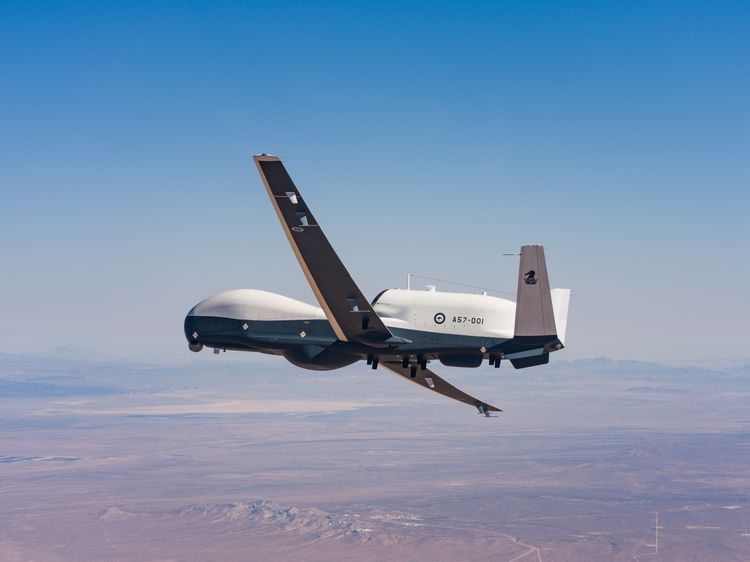Northrop Grumman recently completed the first flight of Australia’s multi-intelligence MQ-4C Triton high-altitude, long-endurance maritime surveillance aircraft.
The aircraft took off just before noon on Nov. 9, at Northrop’s Palmdale, Calif., Aircraft Integration Center. It flew for just under six and a half hours, the company said.
During the sortie, ground crews performed airworthiness evaluations, such as engine, flight-control and fuel-system checks, and conducted basic aircraft handling tests.

The MQ-4C Triton. Northrop Grumman photo
“We are leveraging our deep expertise in uncrewed high-altitude long endurance aircraft to enable Australia to establish a superior long-range maritime surveillance capability to monitor and protect Australia’s maritime interests 24/7,” said Christine Zeitz, Northrop’s chief executive and general manager of Australia & New Zealand.
The flight marks a major production milestone toward delivery of Australia’s first Triton in 2024. Triton achieved a declaration of initial operating capability (IOC) and has been in service with the U.S. Navy since August.
Built for the U.S. Navy and Royal Australian Air Force, MQ-4C Triton high-altitude, long-endurance aircraft performs persistent maritime intelligence, surveillance, reconnaissance and targeting.
In September, the Australian government announced it would buy a fourth Triton that will enhance the resilience of its fleet and provide surveillance capability to monitor and protect Australia’s maritime interests.
All four Australian Tritons currently under contract are progressing as planned through their production schedules, Northrop said.
Australia’s security challenges run the spectrum of humanitarian and disaster relief to maritime monitoring of sea lanes in the Indo-Pacific
“Triton expands Australia’s intelligence, surveillance and reconnaissance capability by providing reliable real-time intelligence and situational awareness. Persistent surveillance enables better planning, greatly enhancing joint military responses and operations,” said Air Marshal Robert Chipman, chief of the Royal Australian Air Force.
Once Triton enters service with the RAAF, U.S. and Australian defense forces will be able to share data collected by their respective aircraft, effectively doubling the intelligence collection capabilities of both countries.